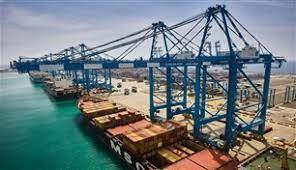ECONOMY
Wed 29 Mar 2023 2:42 pm - Jerusalem Time
Germany opens its doors to foreigners due to the shortage of manpower
After arriving from Reunion Island, Stephen Mayo (23) joined the ArcelorMittal plant in Eisenhötenstadt, Germany , for an apprenticeship at the giant steel group.
This sector is one of the sectors most affected by the shortage of specialized labor force in Europe's largest economies .
Faced with this challenge, the government of Olaf Scholz should adopt a bill on Wednesday aimed at easing the rules for obtaining visas and work permits for citizens of non- EU countries.
For example, it will soon no longer be necessary to present an employment contract to settle in the country, as this is replaced by a points system that measures the "abilities" of candidates to integrate into society.
The goal is to attract more workers. Thus, Berlin is going against the general trend in Europe of closing borders to immigrants.
For Stephen, it was the higher salary and future career behind his decision to leave his island for this city near the border with Poland on Germany's eastern frontier.
This decision was a relief for the giant group, whose director in Germany, Rainer Blaschick, realized that attracting young apprentices like himself was "increasingly difficult".
The shortage of specialized labor has become a real problem. There are currently 2 million vacancies in Germany as the 60's retire.
Due to an aging population, the labor market is expected to lose seven million people by 2035 if the government does not take any steps according to a study by the Institute for Labor Market Research (IAB).
Forty-four percent of German companies from various sectors surveyed by the Ifo institute confirmed that they were affected by a labor shortage in January.
Faced with this difficult situation, German Chancellor Olaf Scholz encouraged employees not to retire early while companies are testing the increasing use of robots, as is the case in the field of providing care for the elderly.
At the beginning of the month, Scholz warned in parliament that relying on Germany's population alone "would not be sufficient" to make up for the shortfall.
Industrialists are trying to face shortage challenges themselves by proposing to train foreigners.
New Eisenhotenstadt (City of Ironworks) was built in the 1950s during communist East Germany. ArcelorMittal employs 2,700 people and welcomes fifty new trainees annually, such as Stephen Mayo.
"For the sake of my future career I have to stay here," he told AFP at the factory, though he misses his country.
Employment Minister Hubertus Hill said during a recent visit to the factory, where he met apprentices, that proper training is important to "retention" of young people.
But it is particularly difficult to find candidates in eastern Germany because of lower incomes compared to the West and an inhospitable reputation.
"So we will also attract the workers we need by opening legal immigration channels," the minister explained.
Achim Dirks, deputy director of the German Chambers of Commerce (DIHK), said at the beginning of the year that the shortage could "impede the achievement of important transition goals" in Germany towards "electric vehicles or renewable energy".
For example, the ArcelorMittal group plans to replace a fossil-fuel furnace with a new hydrogen-electric unit by the end of 2026.
The shift to greener production processes will eliminate some jobs but will create new jobs and thus new job opportunities.
"We are facing a major technical transformation... If we want to transform our facilities over the next four years, we have to start changing the method of training starting now," Blachik says.





Share your opinion
Germany opens its doors to foreigners due to the shortage of manpower